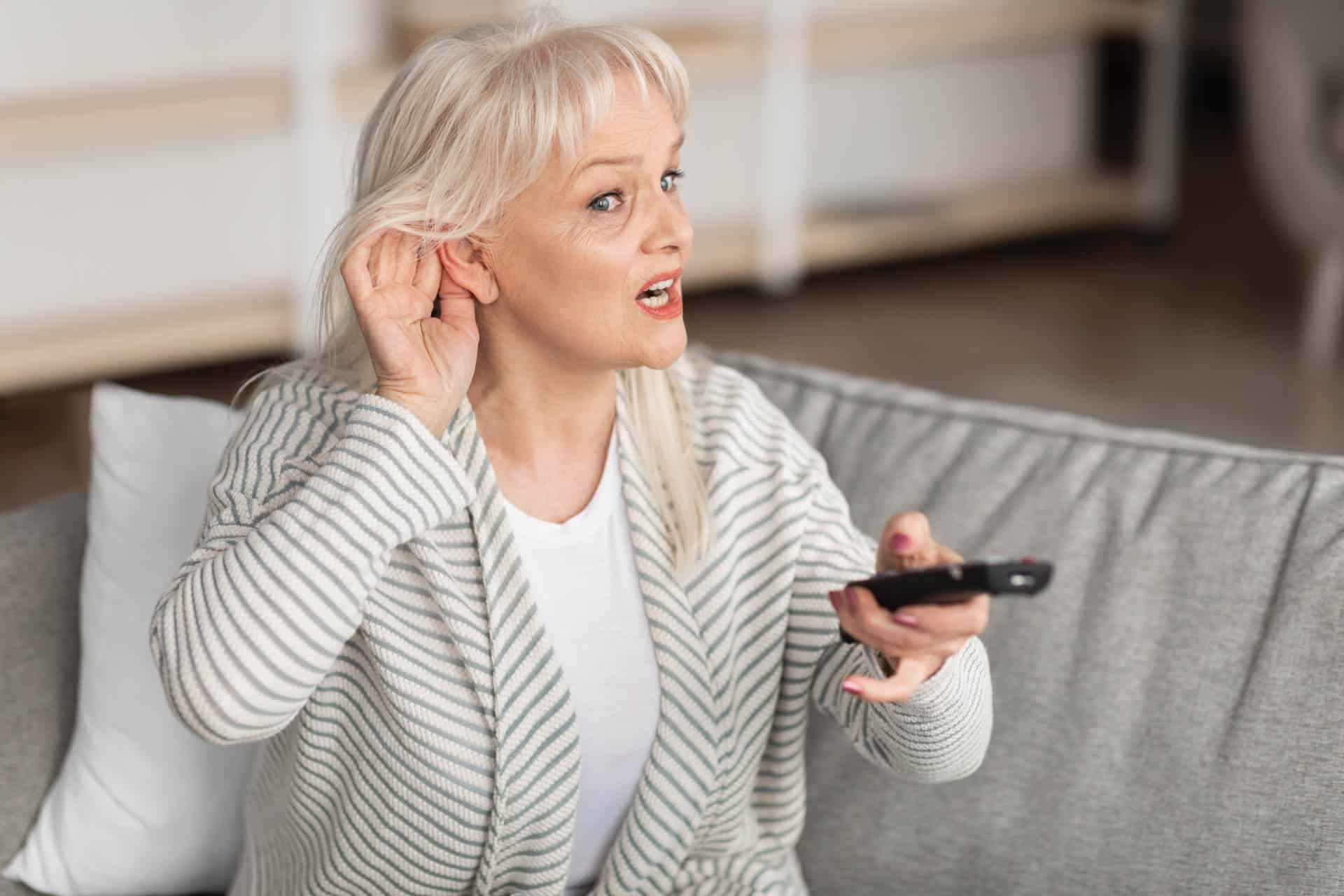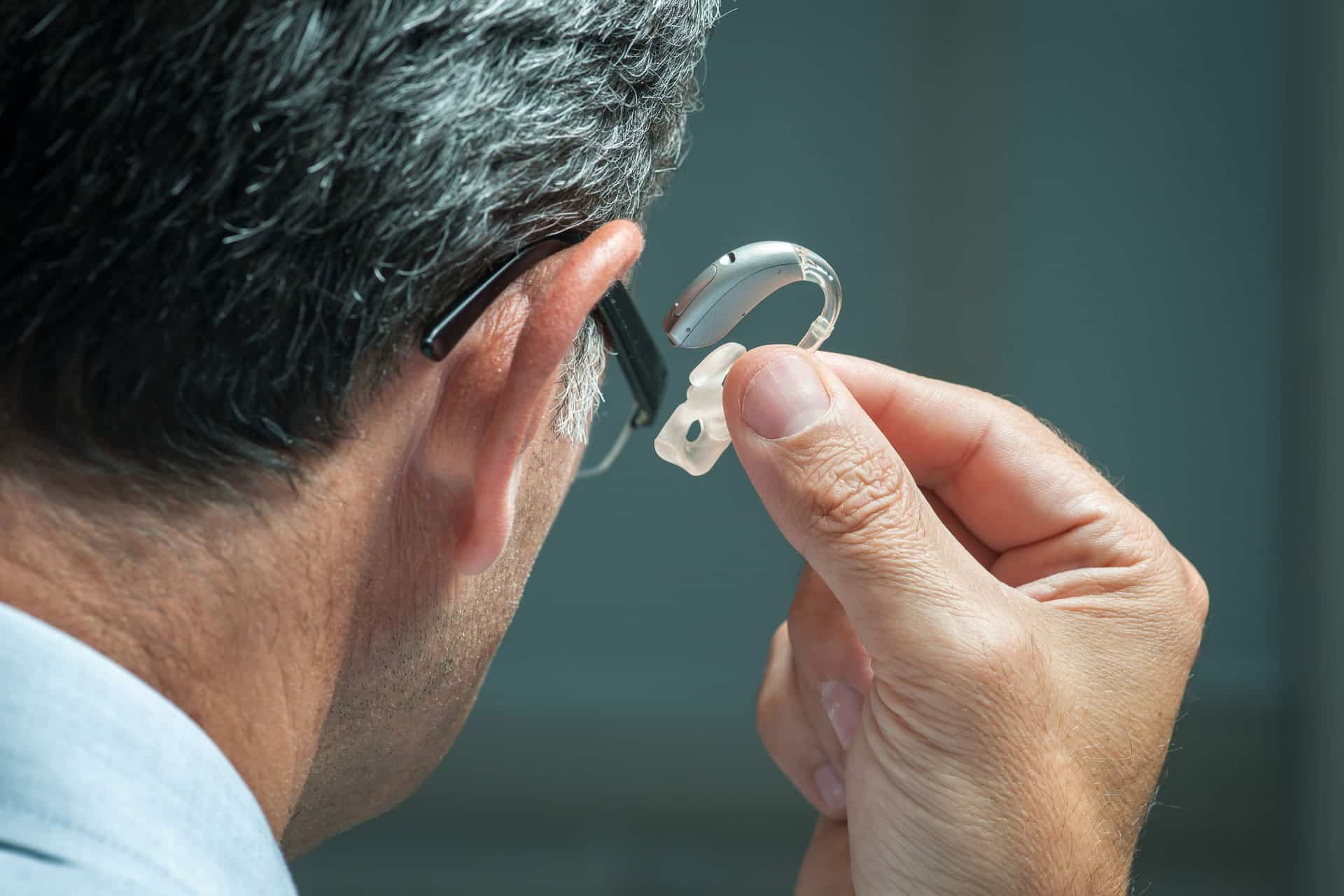Delivery in 2-3 working days
Acoustic hallucinations
A doorbell ringing but no one is at the door, music even though the radio is off, voices or noises even though no one else is in the house. Acoustic hallucinations can be very different. And many people have experienced them in one way or another. They are often harmless, but sometimes they are also a symptom of a mental illness. Below you can find out more about auditory hallucinations, causes, examples and treatment.
What are auditory hallucinations?
Hallucinations are sensory illusions, i.e. those affected perceive stimuli that are not actually real. These stimuli can affect all the senses, for example sight, hearing or touch. A distinction is therefore made between visual, auditory and tactile hallucinations.
Auditory hallucinations relate to hearing. People who suffer from auditory hallucinations hear things that cannot be traced back to a real sound source, but appear real to those affected. These can be voices, noises or music, for example. Acoustic hallucinations should not be confused with ringing in the ears or tinnituswhich are due to physical causes such as noise exposure, hearing loss or circulatory disorders.
Examples of acoustic hallucinations
People with auditory hallucinations can perceive them in very different ways. Some sufferers report hearing whispers or voices in their head, others hear certain sounds such as hissing or cracking, while others hear music, certain songs or melodies.
The intensity or frequency of auditory hallucinations also varies depending on the person or the cause. They can occur continuously or intermittently.
It is important to have the causes clarified by a doctor so that the right treatment can be found on the basis of the diagnosis.
Causes of acoustic hallucinations
We normally perceive external stimuli with our sensory organs, i.e. our skin, mouth, nose, ears and eyes. These stimuli are in turn sent to our brain, where they are processed.
With acoustic hallucinations, misperceptions occur in the brain that trigger these stimuli. The reasons for this can be very different and range from mental illnesses to neurological disorders and stress.
Mental illnesses
Mental illnesses are among the most common triggers of auditory hallucinations and hallucinations in general. Examples include depression or borderline personality disorder, schizophrenia, anxiety disorders and psychoses, which can be triggered by loneliness, too little sleep or a lot of stress, for example.
Stress:
Stress does not automatically lead to mental illness, but it can promote the occurrence of acoustic hallucinations. People who are under a lot of stress often sleep badly. Stressed people are also more likely to resort to unhealthy coping mechanisms, such as a high consumption of coffee or alcohol and drugs.
Physical causes:
There are various physical causes of auditory hallucinations, ranging from a lack of fluids to diseases such as brain tumors, epilepsy, dementia or injuries and traumatic brain injuries and even strokes. Various ear diseases such as tinnitus and hearing disorders can also trigger auditory hallucinations.
Alcohol and drug use:
The consumption of drugs and alcohol is also one of the most common causes of auditory hallucinations. In addition, certain medications can have a similar effect. Even the excessive consumption of coffee has been identified as a causative factor in the occurrence of auditory hallucinations.
Changes in consciousness:
In addition to the consumption of drugs, there are other mind-altering practices that can trigger hallucinations. These include, for example, various forms of mediation. You should therefore be particularly careful here too.
Auditory hallucinations with hearing loss
A particularly interesting phenomenon is acoustic hallucinations caused by hearing loss.
They actually occur very frequently in mentally healthy but hard of hearing or deaf people and often increase with increasing hearing loss. Those affected also hear noises, voices or music that are not real or could not be heard at all due to the hearing loss. They therefore know that these are not real noises or sounds, which is why they are referred to as "pseudohallucinations".
Acoustic hallucinations at night
Acoustic hallucinations occur particularly frequently at night or when half asleep. People suddenly hear voices or noises, think the phone has rung, the cell phone has vibrated, etc. You don't know whether you are dreaming or awake, the situation feels very real.
In contrast to a dream, however, you are still awake, even if only "half awake". And it is often only when they are fully awake that they realize that what they heard was not real.
With these sleep-related hallucinations, a distinction is made in medicine between "hypnagogic" and "hypnopompic" hallucinations. The former occur when falling asleep, the latter when waking up.
Auditory hallucinations in children
Auditory hallucinations are relatively common, especially in children and adolescents. It is particularly important to recognize at an early stage whether this is only temporary or the first sign of a mental illness.
In any case, auditory hallucinations in children are very disturbing, especially for the children themselves. If you notice hallucinations in your child, it is therefore important to seek professional help, for example from a doctor or psychotherapist.
What can be done about acoustic hallucinations?
Auditory hallucinations can have very different causes. It is therefore important to clarify these in order to find the right therapy.
You should therefore always seek medical help if
- You hear, see, feel or perceive things that do not or cannot actually exist
- you hear, see, feel or perceive things that others do not hear, see, feel or perceive
- you are unsure whether things you hear, see, feel or perceive are real
- Hallucinations occur more frequently
- Hallucinations make you feel uncomfortable or afraid
- you notice hallucinations due to medication
- you notice hallucinations due to alcohol and drugs
Treatment of acoustic hallucinations
The treatment of hallucinations is always individual and is based on the doctor's diagnosis and the causes.
In the case of psychological causes, for example, psychotherapy such as cognitive behavioral therapy, possibly in combination with medication, could be useful.
Relaxation and mindfulness are particularly important when stress triggers hallucinations. Sufficient sleep, meditation or yoga exercises can be helpful.
There are also various treatment methods or aids for auditory hallucinations caused by hearing loss, including hearing aids and special audio therapies.
Regardless of the cause, you should always discuss the treatment with a doctor.



